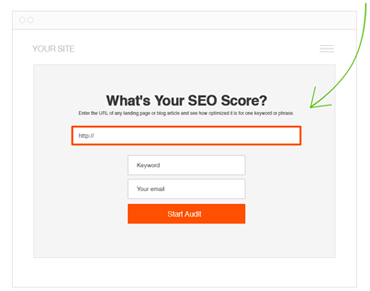How to Measure the ROI of SEO: A Comprehensive Guide
In today’s digital age, Search Engine Optimization (SEO) has become crucial to any successful online marketing strategy. It’s not just about increasing website visibility on search engines; it’s about driving organic traffic, improving user experience, and achieving a positive return on investment (ROI).
However, measuring the ROI of SEO can be complex due to the diverse range of factors involved. In this article, we will guide you through the process of measuring the ROI of SEO to help you understand the effectiveness of your efforts.
Understanding ROI and its Significance
ROI, or Return on Investment, is a metric used to evaluate the profitability of an investment relative to its cost. For SEO, the ROI is essentially about determining whether the resources and time spent on optimization efforts generate tangible benefits, such as increased website traffic, higher conversions, and improved revenue and profit.
1. Set Clear Goals and Objectives
Before measuring ROI, you must establish specific and measurable goals for your SEO campaign. These goals may include increasing organic traffic, improving keyword rankings, boosting conversions, or enhancing user engagement. Having well-defined objectives will provide a clear direction and make it easier to assess the success of your SEO efforts.
2. Monitor Organic Traffic
One of the fundamental aspects of measuring SEO ROI is analyzing changes in organic traffic. By tracking your website’s organic traffic over time, you can determine whether your SEO strategies contribute to increased visibility and attract more potential customers. Google Analytics is essential for monitoring organic traffic and identifying traffic trends.
3. Analyze Keyword Rankings
Keyword rankings are another crucial metric to evaluate SEO success. Monitor your target keywords’ performance in search engine results pages (SERPs). As your website climbs up the rankings for relevant keywords, it should result in more organic traffic. Various SEO tools are available to help you track keyword rankings accurately.
4. Assess Conversion Rates
While increased traffic is essential, the ultimate goal of SEO is often to drive conversions, such as sales, leads, or sign-ups. Monitor the conversion rates for your targeted keywords or landing pages. You can identify which SEO efforts contribute most significantly to conversions by analyzing the conversion rates.
5. Calculate the Cost of SEO Efforts
To determine ROI accurately, you need to calculate the total cost of your SEO campaign. Include all expenses associated with SEO activities, such as website optimization, content creation, link building, and any tools or agencies you employ. A comprehensive understanding of your investment will help you interpret ROI figures more meaningfully.
6. Assign Monetary Value to Organic Traffic
To calculate the ROI of SEO, you’ll need to assign a monetary value to the organic traffic generated through your optimization efforts. There are different approaches to this:
a. Lifetime Value (LTV): Calculate the average lifetime value of a customer and multiply it by the number of new customers acquired through organic traffic.
b. Average Order Value (AOV): Determine the average conversion value (e.g., purchase) and multiply it by the number of conversions from organic traffic.
c. Cost per Acquisition (CPA): If you have data on your average CPA from other marketing channels, you can use a similar value for SEO-driven conversions.
7. Compute ROI
With all the necessary data at hand, calculating SEO ROI is relatively straightforward:
ROI (%) = ((Revenue – Cost of SEO) / Cost of SEO) x 100
Remember that SEO efforts may not yield immediate results, especially in competitive markets. Tracking the results over an extended period is essential to get a more accurate ROI assessment.
8. Consider Intangible Benefits
While ROI is primarily about quantifiable results, it’s essential to consider intangible benefits that may not be directly measurable. Improved brand visibility, increased brand authority, enhanced user experience, and better user engagement are all valuable outcomes of effective SEO, even if they may not have a direct monetary value.
Conclusion
Measuring the ROI of SEO is a vital aspect of any digital marketing strategy. By setting clear goals, tracking organic traffic, analyzing keyword rankings, assessing conversions, and understanding the costs involved, you can gain valuable insights into the effectiveness of your SEO efforts.
Remember that SEO is a long-term strategy, and patience is key to achieving sustainable results. Regularly evaluate your metrics, adjust your strategies as needed, and focus on providing valuable content and experiences for your users to maximize the ROI of your SEO endeavors.
 July 20, 2023
July 20, 2023



Nice Charlie! Keep up the awesomeness.
Thanks John!